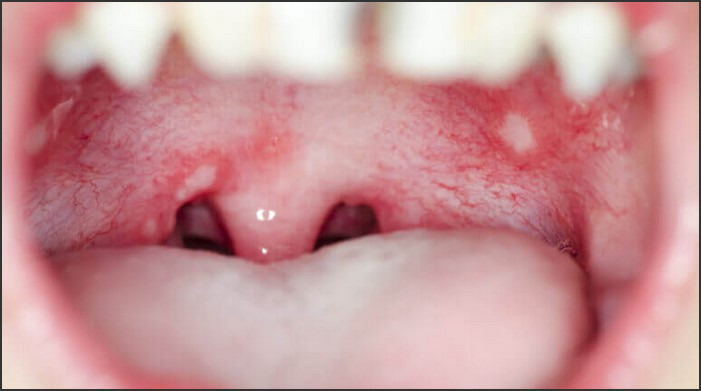White Sore in Back of Throat: Causes, Symptoms, and Home Care Tips
 White sores in the back of the throat can be a sign of a variety of conditions, ranging from minor to serious. These sores can be caused by a variety of factors, including viral or bacterial infections, allergies, and even trauma. Symptoms of white sores in the back of the throat can include pain, difficulty swallowing, and a feeling of something stuck in the throat. Fortunately, there are a number of home care tips that can help alleviate the symptoms and help the sores heal. In this article, we will discuss the causes, symptoms, and home care tips for white sores in the back of the throat.
White sores in the back of the throat can be a sign of a variety of conditions, ranging from minor to serious. These sores can be caused by a variety of factors, including viral or bacterial infections, allergies, and even trauma. Symptoms of white sores in the back of the throat can include pain, difficulty swallowing, and a feeling of something stuck in the throat. Fortunately, there are a number of home care tips that can help alleviate the symptoms and help the sores heal. In this article, we will discuss the causes, symptoms, and home care tips for white sores in the back of the throat.
What Causes White Sores in the Back of the Throat?
White sores in the back of the throat are often caused by a condition known as tonsillitis. Tonsillitis is an inflammation of the tonsils, which are two small glands located on either side of the throat. It is usually caused by a bacterial or viral infection, such as strep throat or the common cold. Symptoms of tonsillitis include sore throat, difficulty swallowing, fever, swollen lymph nodes, and white sores in the back of the throat.
Treatment for tonsillitis typically involves antibiotics to fight the infection, as well as pain relievers to reduce discomfort. In some cases, a doctor may recommend a tonsillectomy, which is a surgical procedure to remove the tonsils.
In addition to tonsillitis, white sores in the back of the throat can also be caused by other conditions, such as oral thrush, which is a fungal infection, or canker sores, which are small ulcers that form on the soft tissues of the mouth. Treatment for these conditions will depend on the underlying cause.
It is important to see a doctor if you experience white sores in the back of the throat, as they can be a sign of a more serious condition. A doctor can diagnose the cause of the sores and provide the appropriate treatment.
Symptoms of White Sores in the Back of the Throat
White sores in the back of the throat can be a symptom of a variety of conditions. These sores can range in size from small bumps to large ulcers. They may be accompanied by other symptoms such as fever, sore throat, difficulty swallowing, and swollen lymph nodes. It is important to seek medical attention if you experience any of these symptoms.
The most common cause of white sores in the back of the throat is a viral infection, such as the common cold or flu. Other viral infections that can cause white sores include mononucleosis, herpes simplex virus, and cytomegalovirus. Bacterial infections, such as strep throat, can also cause white sores. In some cases, the sores may be caused by an allergic reaction to certain foods or medications.
If you experience white sores in the back of your throat, it is important to seek medical attention. Your doctor will be able to diagnose the cause of the sores and recommend the appropriate treatment. Treatment may include antibiotics for bacterial infections, antiviral medications for viral infections, or medications to reduce inflammation and relieve symptoms. In some cases, the sores may resolve on their own without treatment.
It is important to practice good oral hygiene to prevent the spread of infection. This includes brushing your teeth twice a day, flossing daily, and using an antiseptic mouthwash. It is also important to avoid sharing utensils, cups, and other items with someone who has white sores in the back of their throat.
White sores in the back of the throat can be a symptom of a variety of conditions. If you experience any of these symptoms, it is important to seek medical attention to determine the cause and receive the appropriate treatment.
Conclusion
White sore in the back of the throat can be a symptom of a variety of conditions, ranging from the common cold to more serious illnesses such as strep throat. It is important to be aware of the symptoms and causes of white sores in the back of the throat, as well as the home care tips that can help alleviate the discomfort. If the sore persists or worsens, it is important to seek medical attention to determine the underlying cause and receive the appropriate treatment.